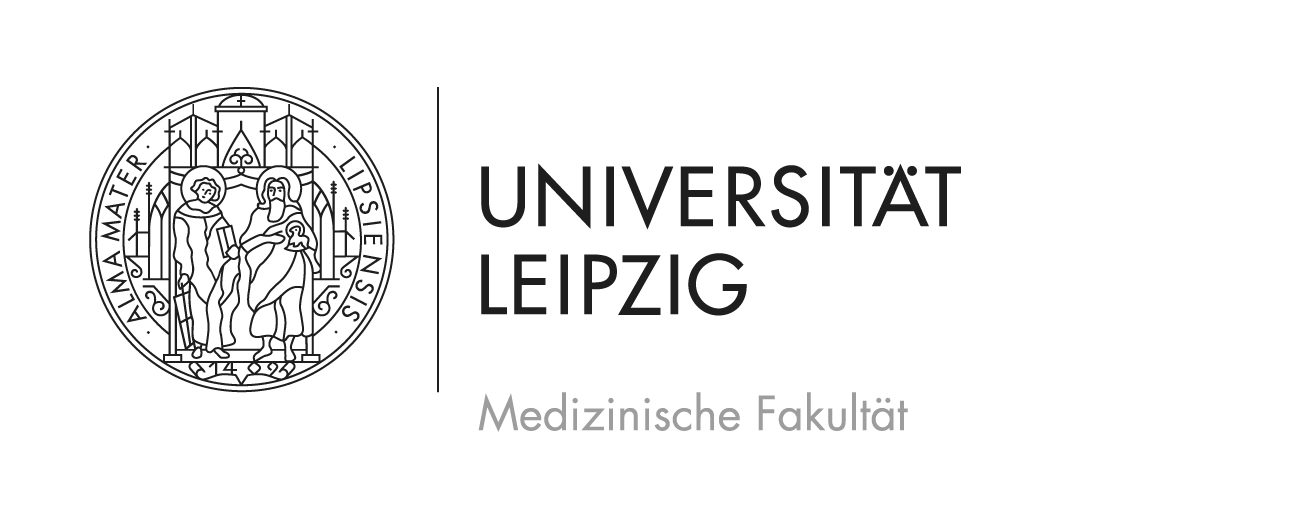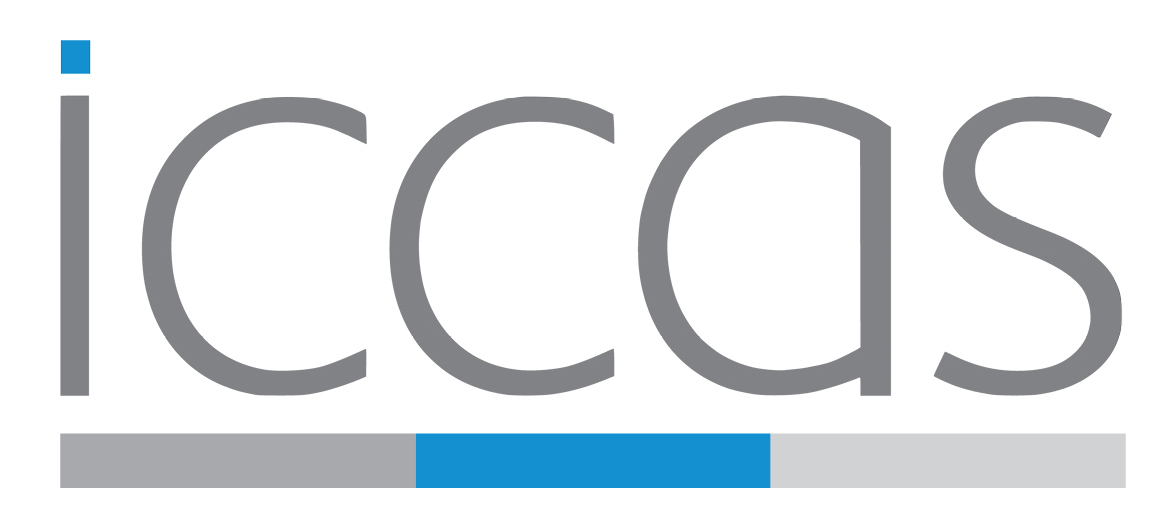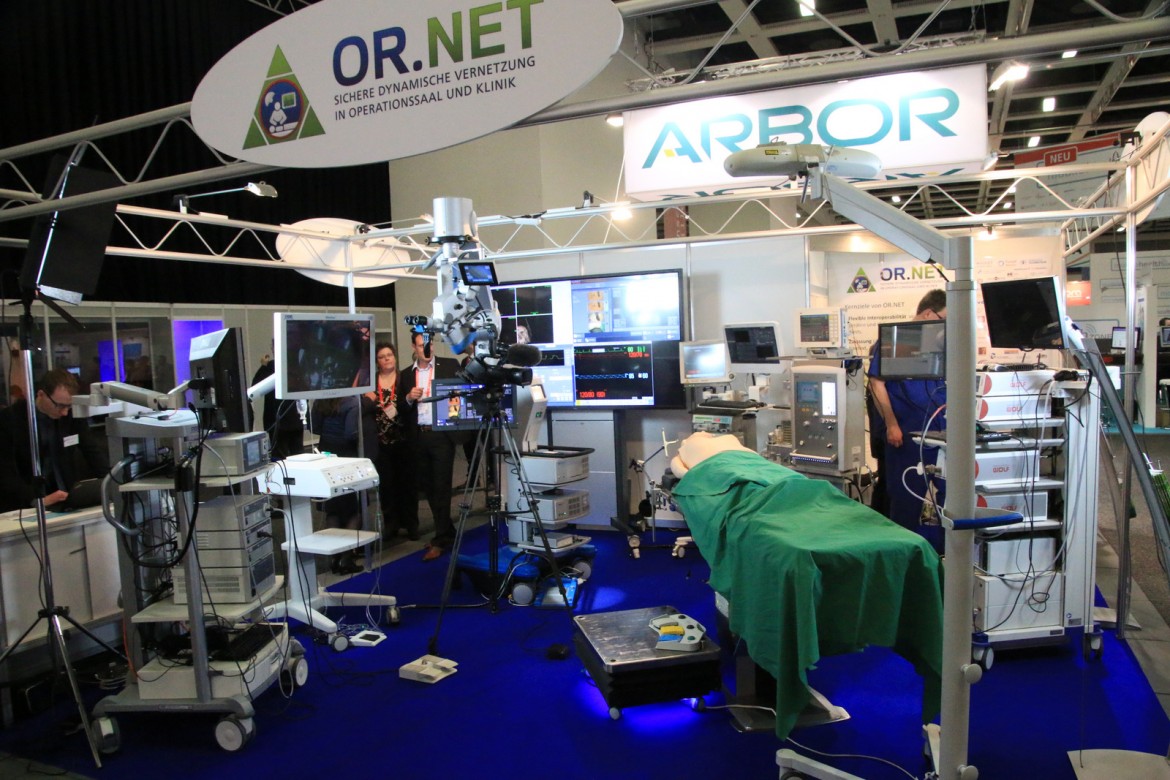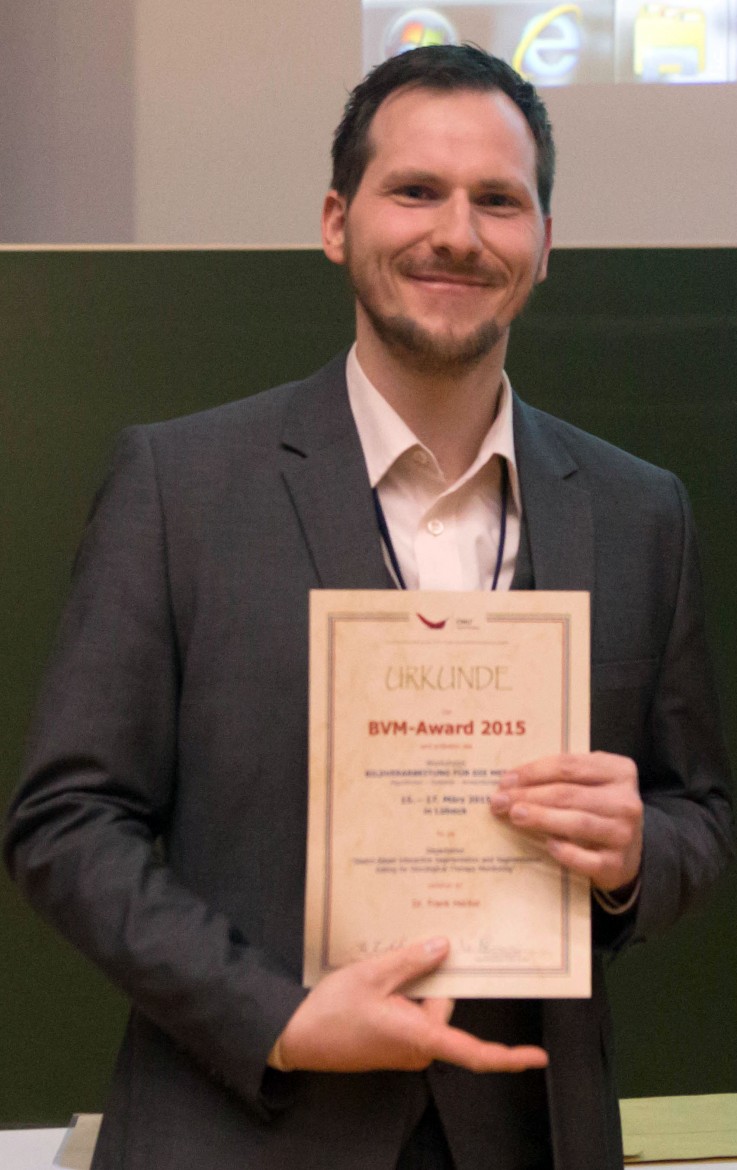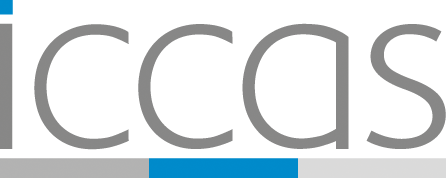10.06.2015
 ICCAS mit eigener Session auf der CARS 2015
ICCAS mit eigener Session auf der CARS 2015
10. Juni 2015
Neben der Präsentation von Forschungsvorträgen und -postern organisiert das ICCAS auf dem diesjährigen Computer Assisted Radiology and Surgery – Kongress (CARS 2015) eine eigene Session, in der neueste Fortschritte und Perspektiven zu wichtigen Aspekten der computergestützten Chirurgie und klinischen Entscheidungsfindung vorgestellt werden. Die optimale Ausnutzung und Anwendung computerassistierter Technologien am konkreten Krankheitsbild Kehlkopfkrebs wird einleitendes Thema der Veranstaltung sein. Besucher der CARS sind herzlich eingeladen, am Samstag, dem 27.06.2015 ab 13Uhr im Raum Berlin, Hotel NH Collection Barcelona Constanza dem einstündigen Programm beizuwohnen.
Programm der ICCAS-CARS-Session
ICCAS auf der CARS 2015
Die hier vorgestellten und weitere Themen der computerassistierten Chirurgie können während der Digital Operating Room Summer School (DORS 2015) des ICCAS vertieft werden. Diese hält im August dieses Jahres spannende Vorträge, Workshops, Diskussionen sowie Einblicke in die Arbeitsweise modernster Operationssäle und in aktuelle Trends und Perspektiven klinischer Entscheidungs- und Workflowunterstützung bereit.
mehr zur ICCAS-Summer School: www.iccas.de/dors
10 June 2015
In addition to the presentation of research lectures and -posters ICCAS will organize an own session at this year’s Computer Assisted Radiology and Surgery-Congress (CARS 2015). There, ICCAS will present its latest research findings and perspectives to important aspects of computer assisted surgery and clinical decision support. The opening theme of this event will be the advantages of harnessing computer assisted technologies explained using the example of Laryngeal Carcinoma. Visitors of CARS are cordially invited to attend the one-hour program on Saturday, 27 June 2015, at 1pm, in Room Berlin, Hotel NH Collection Barcelona Constanza.
Program ICCAS-CARS-Session
ICCAS at CARS 2015
At this session, we would like to arouse the interest in finding out more about this and other aspects of computer-assisted surgery. Our Digital Operating Room Summer School will feature fascinating presentations, workshops, discussions and insights into the methods employed in state-of-the-art operating theaters as well as the latest trends and prospects of clinical decision-making and workflow support.
more about ICCAS-Summer School: www.iccas.de/dors

 Erfolgreiche Zertifizierung mit 63 Fortbildungspunkten der DORS 2015 durch die “Sächsische Landesärztekammer“
Erfolgreiche Zertifizierung mit 63 Fortbildungspunkten der DORS 2015 durch die “Sächsische Landesärztekammer“
10 June 2015
DORS 2015 has been certified by the national authority “Sächsische Landesärztekammer” with 63 CME credits. An application has also been made to the international authority EACCME® for CME accreditation of this event.
For further information and registration: http://www.iccas.de/dors/
27.05.2015
 ICCAS Kolloquium mit Professor Jörg Matysik
ICCAS Kolloquium mit Professor Jörg Matysik
Prof. Dr. Jörg Matysik vom Institut für Analytische Chemie der Universität Leipzig ist nächster Referent im ICCAS-Kolloqium. Er wird zum Thema “MRT mit Hyperpolarisationsmitteln: Ein neuer Ansatz” sprechen.
Datum: Donnerstag, 28.05.2015
Zeit: 13:00-14:00 Uhr
Ort: ICCAS-Konferenzraum, Semmelweisstr. 14, Haus 14, 1. Etage
Zur Person
29.04.2015
 Schülerinnen besuchten am Girls’ Day das ICCAS
Schülerinnen besuchten am Girls’ Day das ICCAS
29. April 2015
In diesem Jahr schnupperten im Rahmen des Girls‘ Days Schülerinnen der 8. und 9. Klasse aus Groitzsch und Taucha Forscheratmosphäre in der medizinischen Informatik. Nachdem die Mädchen im Institut für Medizinische Informatik, Statistik und Epidemiologie sowie am Universitätsklinikum Leipzig Aufgabenbereiche und Arbeitsfelder erkundeten, begrüßten sie insbesondere die Mitarbeiterinnen des ICCAS zu einem experimentellen Nachmittag. Die Mädchen bekamen die Möglichkeit, selbst Hand an medizinische Assistenzsysteme zu legen, mit deren Hilfe Ärzte präziser untersuchen und operieren können. Dazu zählten ein Ultraschallgerät zur Messung der Strömungsgeschwindigkeit des Blutes in Gefäßen, ein Endoskop für sichere Eingriffe an der Wirbelsäule und im HNO-Bereich und eine Fräse für Operationen am Felsenbein. Zudem bestaunten die Mädchen das Konzept der „Magischen Linse“, mit dem anatomische Strukturen innerhalb des Schädels angezeigt werden können und eine Wärmebildkamera zur Messung der Temperatur von Hautarealen für die plastische Chirurgie.
Die wenigsten der 11 Schülerinnen besitzen jetzt schon eine Vorstellung von der späteren Berufswahl. Sie freuten sich über die Möglichkeit, am Girls‘ Day hinter die Kulissen von Forschung und Wissenschaft schauen und ihre Fragen zu Berufsfeldern stellen zu können, in denen vorrangig Männer tätig sind.
[nggallery id=21]
29 April 2015
This year, female pupils from the 8th and 9th grades sampled research atmosphere in medical informatics. After the girls had explored areas of activity and fields of work at the Institute for Medical Informatics, Statistics and Epidemiology and the Leipzig University Hospital scientists of ICCAS welcomed them to an experimental afternoon. The pupils got the possibility to put their hands on medical assistant systems such as an ultrasonic device for measuring the blood flow rate in vessels, an endoscope for secure spine surgery and a milling machine for temporal bone operations. Moreover, the girls gazed at the “Magic Lens” – a concept for the display of anatomical structures inside the skull – and a thermal imaging camera for measuring the temperature of skin areas for plastic surgery.
Fewest of the 11 schoolgirls have now a precise idea of their later choice of occupation. They were very pleased with the chance to look behind the scenes of sciences and research and to ask their questions about typical male occupations.
[nggallery id=21]
23.04.2015
 Fraunhofer MEVIS – Beiträge im ICCAS Kolloquium
Fraunhofer MEVIS – Beiträge im ICCAS Kolloquium
23.04.2015
Die Ingenieurin Ashley Waring sowie der Informatiker David Black vom Fraunhofer-Institut für Bildgestützte Medizin (MEVIS) werden am 24.04.2015 Vorträge im ICCAS Kolloqium halten. Die beiden Wissenschaftler des mit dem ICCAS kooperierenden Instituts werden ihre Erfahrungen zu den Themenbereichen „Auditory Display” und „Usability Engineering“ weitergeben. Das ICCAS heißt Interessenten herzlich willkommen!
Datum: Freitag, 24.04.2015
Uhrzeit: 11-12:00 Uhr
Ort: ICCAS-Konferenzraum, 1. Etage, Haus 14, Semmelweisstr. 14
 ICCAS-Beiträge auf der ConhIT 2015
ICCAS-Beiträge auf der ConhIT 2015
Auf der diesjährigen Satellitenveranstaltung von GMDS und BVMI sowie auf der anschließenden Connecting Healthcare IT (ConhIT) unterbreiteten Wissenschaftler aus den Projekten Digitales Patienten- und Prozess Modell (DPM) sowie Sichere dynamische Vernetzung in Operationssaal und Klinik (OR.NET) ihre aktuellen Forschungsergebnisse einem umfangreichen Fachpublikum.
DPM-Nachwuchsgruppenleiterin Dr. Kerstin Denecke stellte in einem Satellitenworkshop der Fachmesse die Idee, Motivation und Methodik des Digitalen Patientenmodells vor. Mit großem Interesse diskutierten Teilnehmer die sich darin befindliche innovative Idee der wissensbasierten Systeme in der Medizin.
Beim öffentlichen Statusmeeting zum Verbundprojekt OR.Net sprach Max Rockstroh über den aktuellen Entwicklungsstand des Teilprojektes 6 – Demonstratoren im OR.Net, an dem das ICCAS maßgeblich beteiligt ist. Zudem präsentierten die Wissenschaftler einen Demonstrator, mit dem eine herstellerübergreifende Interaktion zwischen Medizingeräten möglich ist. Besucher bewerteten die Projektneuheiten sehr positiv, was sich in Diskussionen über die technische Umsetzung, das Risikomanagement und die Zulassung eines solchen dynamisch vernetzten Systems niederschlug.
13.04.2015
 Professor Andreas Melzer und Doktor Kerstin Denecke – zwei Forscherporträts
Professor Andreas Melzer und Doktor Kerstin Denecke – zwei Forscherporträts
13. April 2015
Im aktuellen Mitarbeitermagazin der Universitätsmedizin Leipzig berichten ICCAS-Direktor Prof. Andreas Melzer und DPM-Nachwuchsgruppenleiterin Dr. Kerstin Denecke über ihr wissenschaftliches Wirken an den Schnittstellen zwischen Radiologie – Chirurgie bzw. Informatik – Chirurgie. Die interessanten Forscherportraits bringen dem Leser zudem Visionen und eine persönliche Seite der beiden Wissenschaftler nahe.
 GIRLS‘ DAY 2015 im ICCAS
GIRLS‘ DAY 2015 im ICCAS
13. April 2015
Auch in diesem Jahr bereitet sich das ICCAS gemeinsam mit dem Institut für Medizinische Informatik, Statistik und Epidemiologie sowie dem Universitätsklinikum Leipzig darauf vor, den Mädchen-Zukunftstag mitzugestalten. Am 23. April 2015 werden vorrangig die weiblichen ICCAS-Forscher Einblicke in eine Arbeitswelt gewähren, die ingenieurwissenschaftliches und informationstechnisches Wissen erfordert. Die Mädchen erwartet ein praktisches Programm, bei dem sie auch den hochmodernen Demo-OP kennenlernen werden. Dort stehen z.B. computer-gesteuerte chirurgische Assistenzgeräte zum Testen am Phantomschädel bereit.
Die Veranstaltungen des weltweit größten Berufsorientierungsprojekts für Schülerinnen sollen die Interessen und Qualitäten für technische und naturwissenschaftliche Berufe wecken, in denen weibliche Mitarbeiter eher selten vertreten sind. Die Wissenschaftlerinnen des ICCAS hoffen, die Mädchen darin bestärken und brennenden Fragen zur Berufswahl beantworten zu können.
13 April 2015
Together with the Institute for Medical Informatics, Statistics and Epidemiology (IMISE) and the Leipzig University Hospital, ICCAS is this year again preparing for Girls’ Day. On 25th April 2015 primarily ICCAS’s female researchers will provide insights into the world of medical engineering and information technology. The girls expect a practical program where they will get the possibility to test surgical assistant devices at phantom skulls in ICCAS’s state of the art Demo-OR.
The events of the world’s largest professional guidance project for pupils should arouse interests and qualities for technical and scientific professions in which female employees are rarely represented. ICCAS’s researchers hope to encourage the girls and will answer burning questions on their future career choice.
25.03.2015
 BVM-Award für Dr. Frank Heckel
BVM-Award für Dr. Frank Heckel
Auf dem diesjährigen Workshop Bildverarbeitung für die Medizin (BVM) in Lübeck wurde Dr. Frank Heckel für seine hervorragende Dissertation mit dem BVM-AWARD 2015 ausgezeichnet. Bevor der Diplominformatiker seinen Preis entgegennahm, stellte er in einem Vortrag die wesentlichen Ergebnisse seiner Arbeit zur genaueren und reproduzierbareren volumetrischen Vermessung von Tumoren in Computertomographiedaten vor. Die entwickelten Verfahren unterstützen Radiologen bei der Beurteilung der Wirkung einer Chemotherapie.
Für den Gastwissenschaftler vom Fraunhofer MEVIS ist es bereits der zweite Preis, den er für seine Dissertation „Sketch-Based Interactive Segmentation and Segmentation Editing for Oncological Therapy Monitoring“ mit nach Hause nehmen darf. Im September vergangenen Jahres war er Gewinner des im Bereich Medizinische Bildverarbeitung begehrten Karl-Heinz-Höhne Preises.
Dr. Frank Heckel received the BVM-AWARD 2015 for his outstanding dissertation at this year’s workshop on Image Processing for Medicine (BVM) in Lübeck. Before the award ceremony the guest researcher from Fraunhofer MEVIS presented essential results of his doctoral thesis on reproducible volumetric measurement of tumors in computer tomography data. The methods support radiologists in assessing the effect of chemotherapy.
This is already the second prize for Heckel’s dissertation „Sketch-Based Interactive Segmentation and Segmentation Editing for Oncological Therapy Monitoring“. Last year in September his was a winner of the MedVis-Award.
16.03.2015
 Posterbeitrag auf der SPIE Medical Imaging 2015 in Orlando (USA)
Posterbeitrag auf der SPIE Medical Imaging 2015 in Orlando (USA)
16. März 2015
Bernhard Glaser (MAI) stellte auf der diesjährigen SPIE Medical Imaging Konferenz in Form einer Posterpräsentation seine wissenschaftliche Arbeit zur Thematik der multisensorischen Identifikation von chirurgischen Instrumenten vor. Besucher erhielten Einblicke in die aktuellen Forschungsergebnisse des Diplominformatikers zur Erkennung von chirurgischen Instrumenten auf dem Instrumententisch und vor allem zu deren Qualitäts- und Größenunterschieden. Die Resonanz auf den Beitrag war sehr gut, es kam zu vielfältigen Diskussionen und wertvollen Anregungen.
Auf der SPIE Medical Imaging können sich Besucher über die weltweit neuesten Entwicklungen in den Bereichen digitale Bildverarbeitung, computergestützte Diagnose und Therapie sowie neue Untersuchungsverfahren informieren. Themen wie Big Data im Zusammenhang mit Cloud Computing und Machine Learning waren auf der Konferenz, die in Orlando (USA) stattfand, breit vertreten.
16 March 2015
Bernhard Glaser (MAI) informed with a poster presentation his scientific work on multi-sensor identification of surgical instruments at this year’s SPIE Medical Imaging Conference. Visitors was given an insight into the computer scientist’s current research results on the recognition of surgical instruments at the instrument tray and especially on their quality and similarity metrics. The resonance was very good. There were diverse discussions and valuable proposals.
Visitors of the SPIE Medical Imaging can obtain latest information about worldwide developments in the fields of digital image processing, computer-aided diagnosis and therapy as well as new investigative procedures. Topics such as Big Data connected with Cloud Computing und Machine Learning were widely represented.
